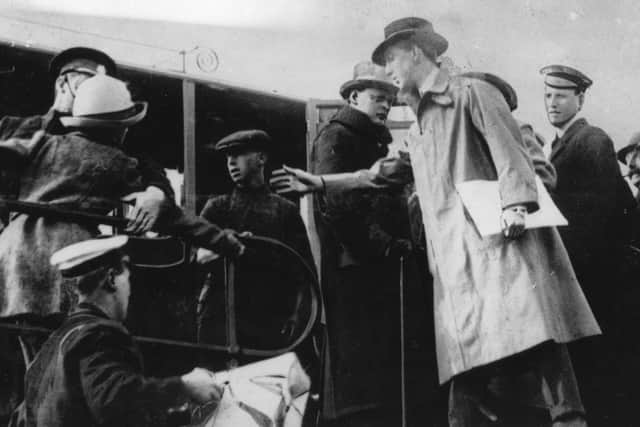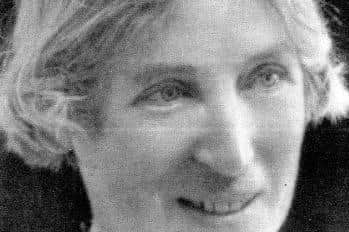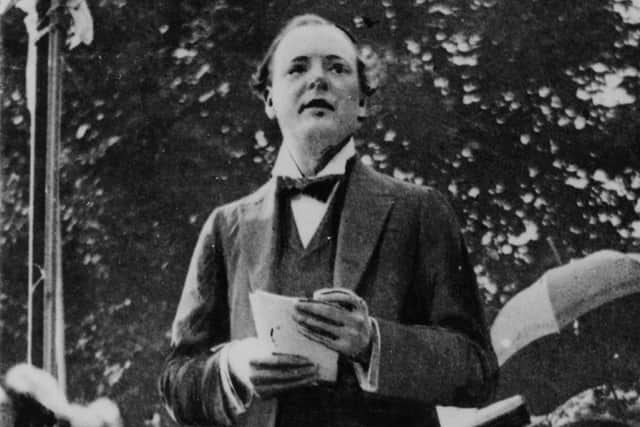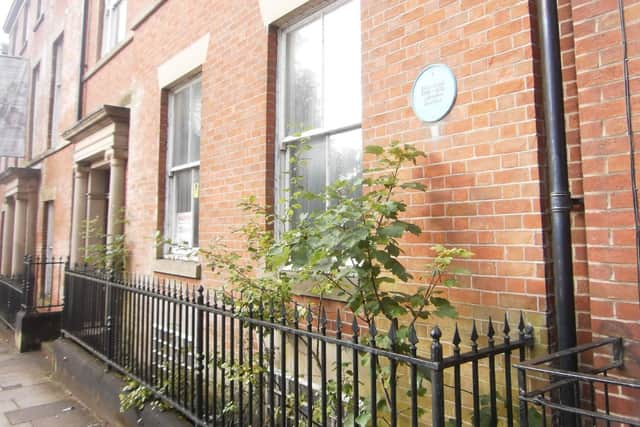Night protesters in Preston targeted Winston Churchill with potatoes
and live on Freeview channel 276
On December 3, 1909, Winston Churchill, in his role as President of the Board of Trade, visited the Public Hall in Preston to discuss the People’s Budget, the government’s policy on social reform.
The presence of Churchill in the town was an ideal opportunity for local suffragette Edith Rigby and her fellow Women’s Social and Political Union members to cause as much disruption as possible.
Advertisement
Hide AdAdvertisement
Hide AdAfter much protesting in London, finally, an opportunity had arisen for the Preston branch to be at the forefront of the campaign for Votes for Women.


All eyes were on Preston and Rigby and, as leader, she had to make sure they were well prepared and organised, she even suggested that each woman carry a potato in her pocket with a message attached which could be thrown towards Churchill in the hope that it would either hit him directly, or land near enough for the message to be read.
Preparation was important and the day before Churchill’s arrival Rigby dressed herself as a shrimp seller in order to get access to the hall, she needed to gain a sense of the layout of the meeting rooms, she knew they wouldn’t have much time, so they had to get in quickly to get the job done.
Later that night, four suffragettes pasted propaganda posters depicting a suffragette being held down and forcibly fed on the walls of Preston Prison, the Liberal Club, General Post Office, and pillar boxes.
Advertisement
Hide AdAdvertisement
Hide AdThe police were aware of the mayhem these women could cause; it was widely reported in the Press how rallies often ended in violence, so they had to be ready for trouble.


To try to keep a lid on any disturbances, all women were banned from attending the meeting. Approximately 150 officers were on duty that evening, barricades were erected around the hall and the surrounding streets with no access for any vehicles or pedestrians who did not hold prior permits from 4pm.
So severe was the threat, extra officers were drafted in from London, all the windows were boarded up and the glass roof was made secure with a tarpaulin cover. Should a suffragette find herself on the roof, there was a hose pipe at hand which could be aimed at her to force her down.
Those who lived or worked in the surrounding area were warned that if they were found harbouring these women there would be serious repercussions. Crowds of up to 6,000 started to gather and as they built so did the tension.
Advertisement
Hide AdAdvertisement
Hide AdRigby and three fellow suffragettes set off, presumably from her home in Winckley Square, to try to gain access to the hall, but as they headed down Lune Street, they faced hostile crowds and were forced back, so they decided to go down the narrow Surgeon’s Court passage and on to Fox Street.


At about 8pm they finally managed to get to the entrance of the hall, naturally they were denied access by the officials, but the women refused to leave. The women were subjected to abuse both physically and mentally: they were pelted with horse manure, and it got so violent some of the women were let through for their own safety.
Another group, headed by Beth Hesmondhalgh, mounted the barriers down Fox Street and started giving their speeches as loud as they could. As soon as she started addressing the all-male crowd she was hauled down by the police, only for Rigby to get up in her place shouting, ‘We are here to stay!’
Further police officers were soon called over and Rigby followed Hesmondhalgh into the back of the police van, quickly followed by fellow Prestonian Catherine Worthington and Londoner Rosamond Massey and they were taken to the town’s police station.
Advertisement
Hide AdAdvertisement
Hide AdUnfortunately, none of the women had managed to deploy their potatoes to full effect and when asked to empty their pockets at the police station, the officers were faced with nothing but a table full of vegetables.


They were all charged with resisting and obstructing the police and it was reported that riots broke out across Preston that night. It is unsure whether Churchill was aware of the commotion outside the hall, but certainly the women had made their presence felt and achieved their aim of causing disruption in the name of Votes for Women.
All four of the women were hauled in front of a judge the following morning and each one given a custodial sentence, with Hesmondhalgh reiterating again that if it raised awareness for the Votes for Women campaign, then imprisonment was worth it – she chose to happily go to prison for one week.
Rigby was not a working-class woman like her fellow comrades, she was the wife and daughter of doctors and the idea of her being in prison in her hometown was too much for her family to deal with. Her father, Dr Rayner, paid the five shilling fine to secure her release.
Advertisement
Hide AdAdvertisement
Hide AdThe actions of her father sent Rigby into a rare rage. She was beyond angry at his good intentions, but this went against everything she stood for. Her reaction was unusual for the calm and placid lady with the soft voice and mild temperament, but they had deprived her of the opportunity to highlight the plight of women on her own doorstep.
Like other prisons in the country, Preston Prison subscribed to the act of force feeding those who used hunger strike as a further form of protest. This horrific act made Hesmondhalgh so ill that she had to be released under the cover of darkness so as not to highlight her condition. If by paying her fine her father had sought to remove Rigby from the news headlines, he was very much mistaken.
By paying the fine he had only encouraged her to find another way to cause more mayhem and she quickly started to plot her next move. As part of his nationwide progress, Churchill headed to Liverpool, so she decided to follow him there on his tour a day later where she was arrested and imprisoned after breaking the window of a local police station.
The Rebel Suffragette, by Beverley Adams is available from Pen & Sword Books priced £19.99.